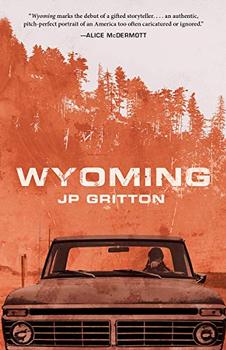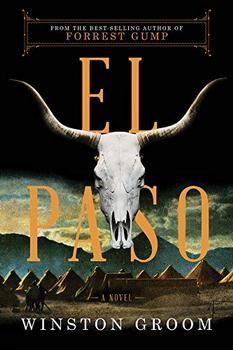Summary | Excerpt | Reviews | Beyond the book | Read-Alikes | Genres & Themes | Author Bio

A true masterwork of haunting and spectacular vision from one of our greatest writers, Canada is a profound novel of boundaries traversed, innocence lost and reconciled, and the mysterious and consoling bonds of family.
"First, I'll tell about the robbery our parents committed. Then the murders, which happened later."
When fifteen-year-old Dell Parsons' parents rob a bank, his sense of a happy, knowable life is forever shattered. In an instant, this private cataclysm drives his life across a threshold that can never be uncrossed.
His parents' arrest and imprisonment mean a threatening and uncertain future for Dell and his twin sister, Berner. Willful and burning with resentment, Berner flees their home in Montana, abandoning her brother and her life. But Dell is not completely alone. A family friend intervenes, spiriting him across the Canadian border, in hopes of delivering him to a better life. There, afloat on the prairie of Saskatchewan, Dell is taken in by Arthur Remlinger, an enigmatic and charismatic American, whose suave reserve masks a dark and violent nature.
Undone by the calamity of his parents' robbery and arrest, Dell struggles under the vast prairie sky to remake himself and define the adults he thought he knew and loved. But his search for grace and peace only moves him nearer a harrowing and murderous collision with Remlinger, an elemental force of darkness.
A true masterwork of haunting and spectacular vision from one of our greatest writers, Canada is a profound novel of boundaries traversed, innocence lost and reconciled, and the mysterious and consoling bonds of family. Told in spare elegant prose, resonant and luminous, it is destined to become a classic.
Canada is a big book in every sense of the word - set against a vast, stark landscape, dealing with heavy metaphors. It is a beautifully crafted novel; yet its languid pace, especially in the first half of the book, will unfortunately lose many readers. In the end, Canada emerges as a wonderful, deeply contemplative look at some of the most essential questions of all our lives: How do you deal with loss? Are there second acts in life? Exactly how fluid are boundaries?..continued
Full Review
(753 words)
This review is available to non-members for a limited time. For full access,
become a member today.
(Reviewed by Poornima Apte).
The vast prairies of Saskatchewan, where one can easily be "unimaginably bored" are the perfect setting for Richard Ford's Canada. Bordering Montana and North Dakota, it is one of two Canadian provinces that is completely landlocked (Alberta is the other one) and has no geographical features distinguishing its boundaries. It is over 250,000 square miles (over 650,000 square kilometers) - almost the size of Texas. The province's name has its origins in the Plains Indian word, kisiskatchewan, meaning "the river that flows swiftly"; a reference to the Saskatchewan River.
Interestingly, the city of Saskatoon in Saskatchewan province is named after the saskatoon berry, which is often used by the province's aboriginal people in making pemmican...
This "beyond the book" feature is available to non-members for a limited time. Join today for full access.

If you liked Canada, try these:

by JP Gritton
Published 2019
A cross between Daniel Woodrell and Annie Proulx, Wyoming is about the stubborn grip of inertia and whether or not it is possible to live without accepting oneself.

by Winston Groom
Published 2017
Three decades after the first publication of Forrest Gump, and seventeen years since his last novel, Winston Groom returns to fiction with this sweeping American epic.